
For all its longevity and sales success, the Volkswagen Jetta feels as though it lives in the shadow of its siblings, particularly the Golf. While the hatchback is celebrated as a fun, sensible import compact option, with the GTI having achieved near-legendary status as the ur-hot hatch, the Jetta seems to enjoy little of the same reputation, with even its performance GLI trim playing second fiddle to the hatchback GTI. Given Volkswagen's positioning in the American car market as a more refined, executive-friendly alternative to the likes of Nissan and Chevrolet, where does the Jetta come in? Is it an unsung budget luxury car? A long-overlooked performance gem? An unremarkable sedan of remarkable mediocrity? Driving one can help us answer these questions.
On the outside, the Jetta shares the slick, slightly angular styling of its contemporary Passat, albeit in a smaller package. The angular light fixtures and fondess for straight lines that characterized VW's American offerings for decades are still present, but are offset by modern sensibilities, notably a sleeker hood, spacious, smoothly contoured cabin, and gaping lower grille, replete with a faux chin splitter. Volkswagen moved the base of the A pillar rearwards relative to some of this car's contemporaries, a somewhat surprising move given the increasing prevalence of cab-over-engine designs in compacts at the time, popularized by the eighth generation Civic. While this may compromise interior volume, it results in a more angular silhouette with a well-defined hood profile, a styling choice that makes the Jetta's appearance slightly reminiscent of a rear wheel drive BMW. At the rear, a short, blocky rear deck makes the most of the available trunk space, and a twin-tip exhaust adds perhaps the barest hint of sporting character, though the Jetta is mostly absent of such touches apart from the 17 inch alloy wheels.

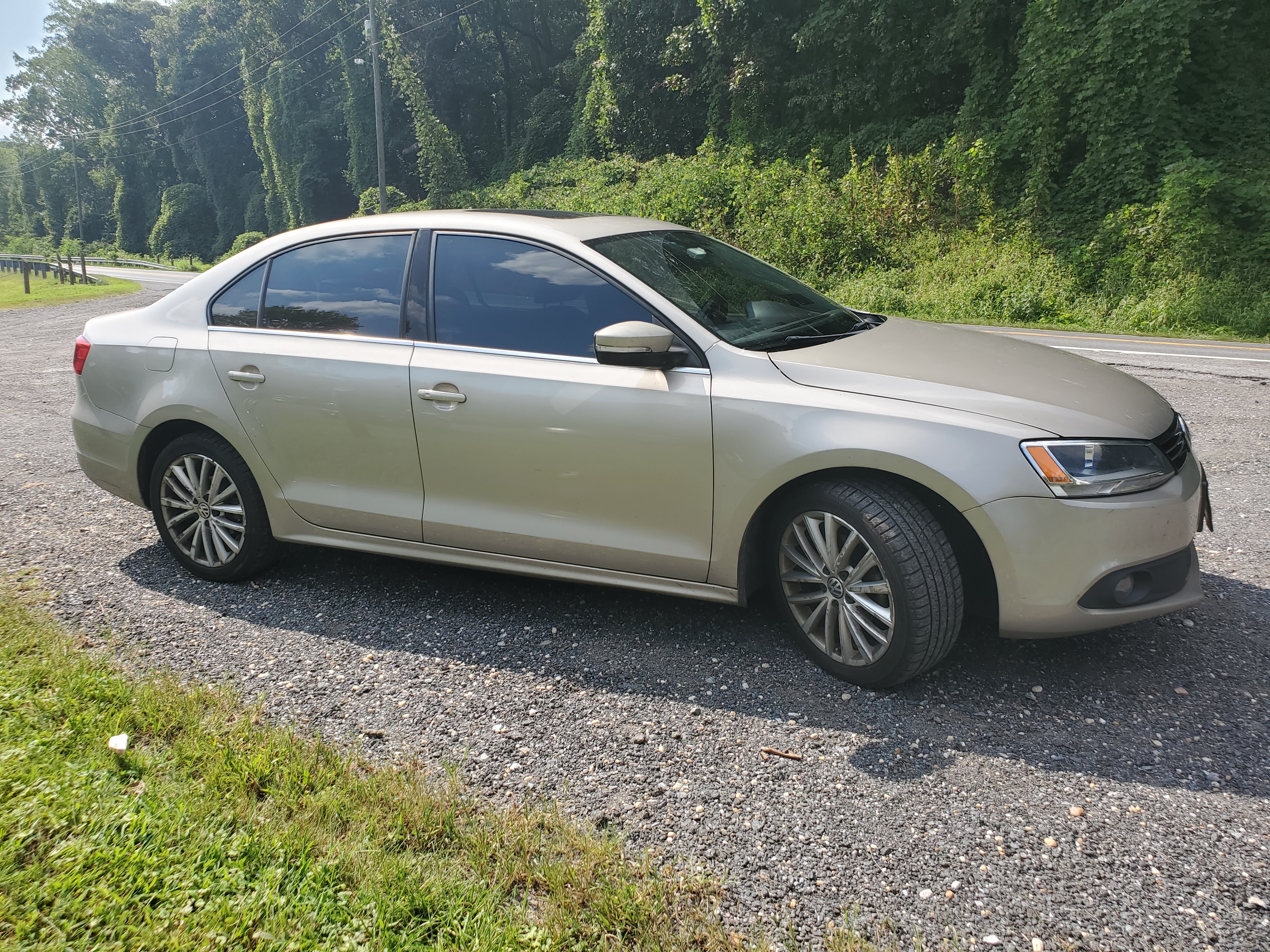

The Jetta's interior offers few surprises; styling touches are restrained in a manner that blurs the line between tasteful and boring, and the SEL, being a higher trim, gets a small infotainment screen in place of the standard head unit. This infotainment system is a fine value add for the time, including a GPS map that doesn't require a smartphone to work. This trim also boasts leatherette seats, which feature deep, supportive bolsters, as well as a slick leather-like surface, though their actual cushioning ability feels more like a budget compact than a sporty touring sedan. Fortunately, what the interior lacks in mind-blowing style or outstanding comfort, it regains in overall space. The rear seats have plenty of leg-room and headroom for the segment, and the front seats feel quite spacious, so much so that one begins to wonder what differentiates this model from the larger Passat. This is a car that four people would fit rather comfortably in, and the backseat really feels like more than just an afterthought, unlike the commuter-oriented Ford Focus. In fact, the accommodating interior is one of the car's strongest aspects; the Jetta truly seems like a five-seat sedan that is designed to be used as such, with perhaps the only drawbacks for carpooling being unavoidable factors inherent to the compact segment, notably the limited rear legroom and the smallish trunk.
Perhaps the single most looked-at part of the entire car is the driver's position, and be it for good or ill, it's just as unremarkable yet sleek as the rest of the interior. The gauge cluster feels strangely vacant, with most of the data save for the speedometer and tachometer being placed in a tiny central multifunction display. The steering wheel is large and easy to grip, compensating for uncommonly high steering effort, and the controls are placed typically for Volkswagen, including a vacant spot on the steering wheel where media controls might be placed, save for the fact that they're absent.
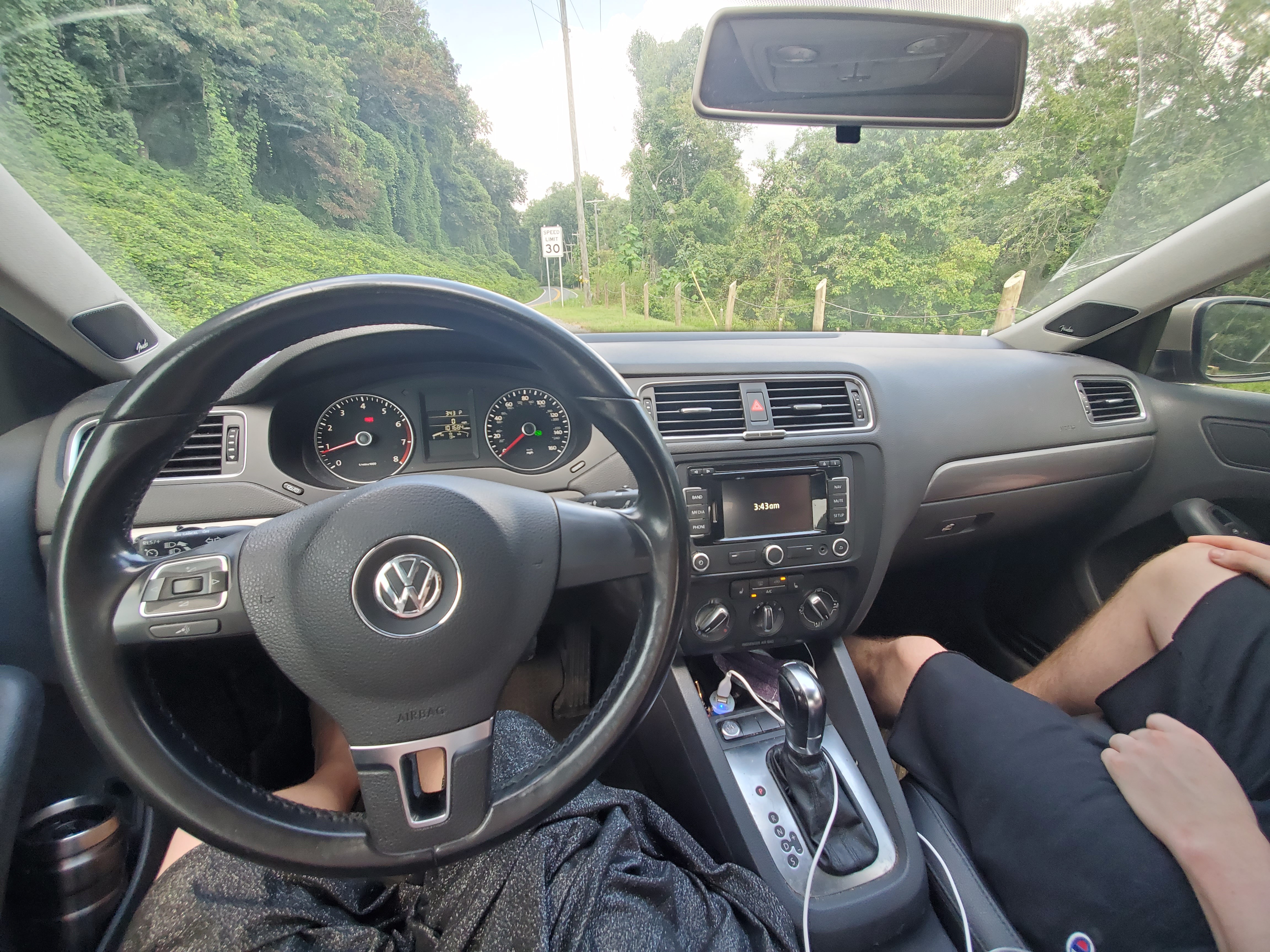
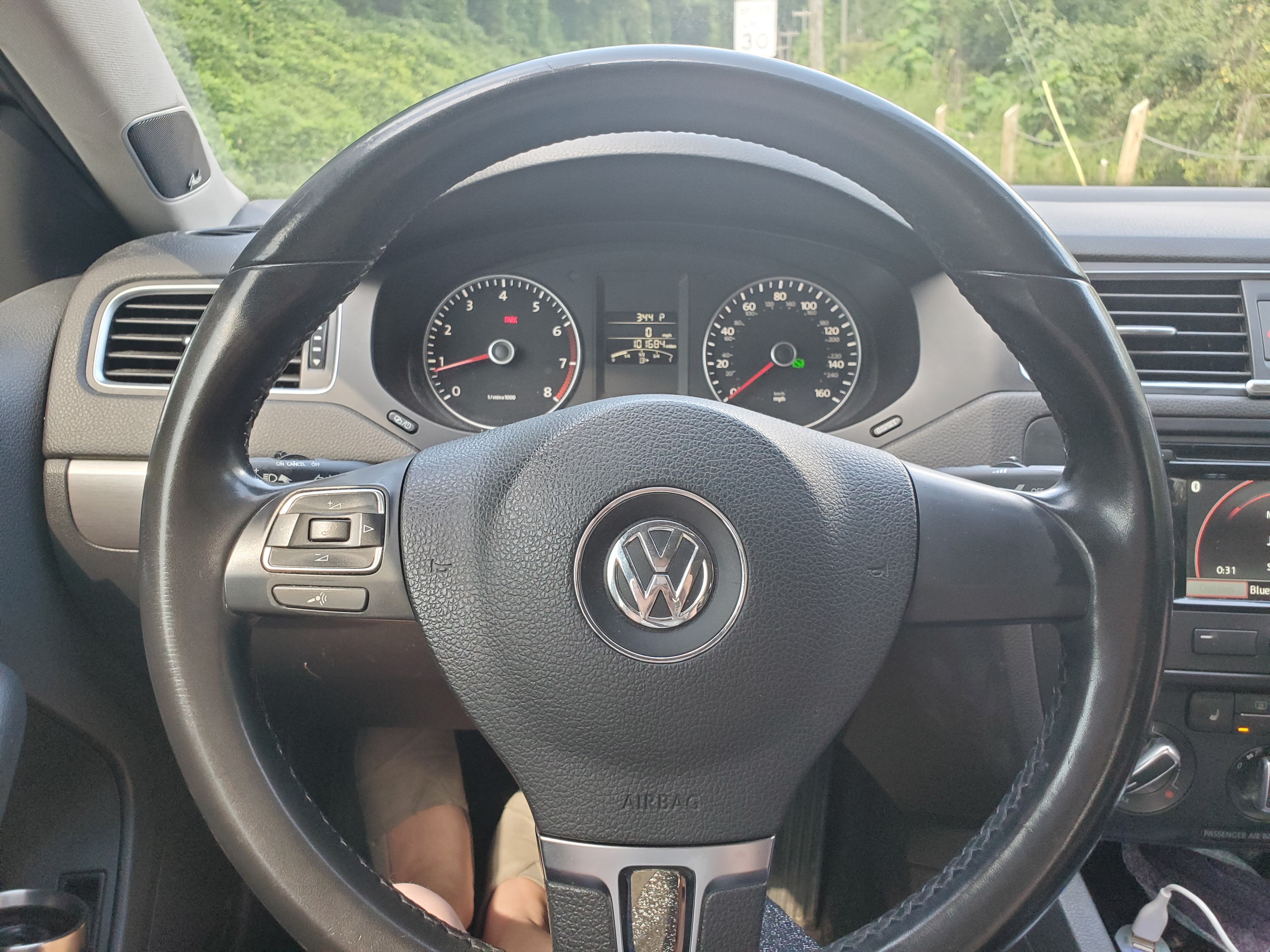
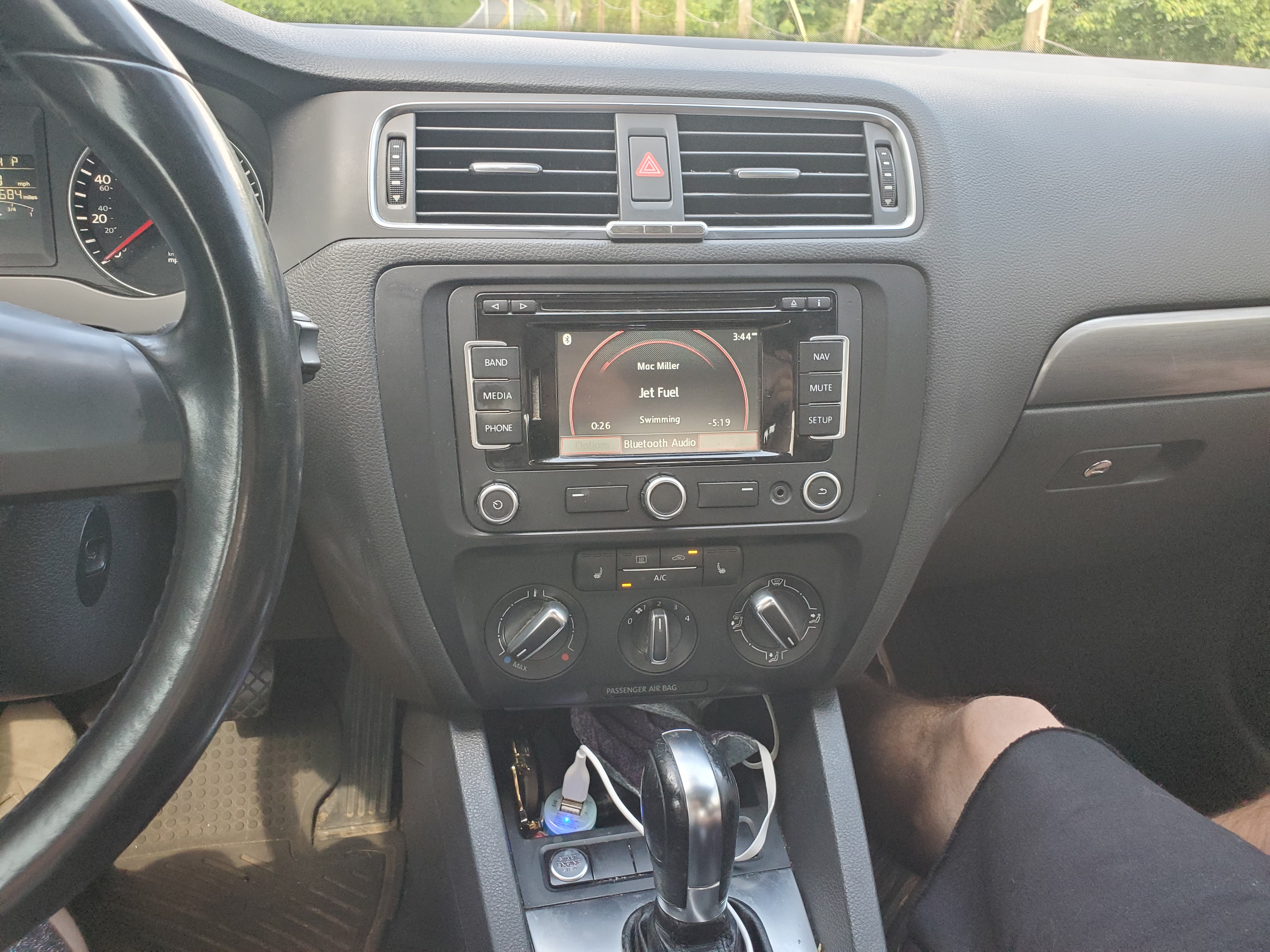
The reader, at this point, might be inclined to turn away from the page, reassured that Volkswagen has done it again, making yet another comfortable, practical family sedan. However, that's not the whole story; the Jetta's polite, family-friendly tone is somewhat altered by the driving experience it delivers. As comfortable as the seats try (with mixed results) to be, the ride is firm, very much so. The 17 inch wheels only add to this, resulting in a shockingly firm and connected ride for such a sedan. The springs and dampers are stiff, resulting in a connected, road-hugging ride, along with minimal body roll, and grip is plentiful. The steering is also surprisingly heavy, particularly at low speeds, and the steering wheel offers more feedback than most modern sedans. The Jetta turns into corners eagerly, and sticks to them with confidence, and the driver is given plenty of warning when the front wheels finally start to let go.
All of this is done, rather surprisingly, with a solid rear axle! Volkswagen opted for a solid axle instead of a semi-independent torsion beam, constrained by two radius arms and a Panhard rod, a remarkably anachronistic design for 2013. While this configuration has greater unsprung weight, and slightly worse bump response, than a torsion beam, it benefits from slightly better toe/camber control and lateral compliance, and any further doubts can be assuaged by the car's competent, smooth handling. Perhaps the only true downside of the car's handling is its effect on cabin comfort. With the seats being a mixed bag, a softer ride might have saved the Jetta, but with its boy-racer roughness, the driver, and any passengers, quickly learn to brace themselves for any pothole or bump they can't steer out of the way of, and road noise is quite pronounced, a far cry from the Passat and CC's quiet cabins. Even more cabin noise comes from the throaty growl of the Jetta's 2.5 liter inline five.
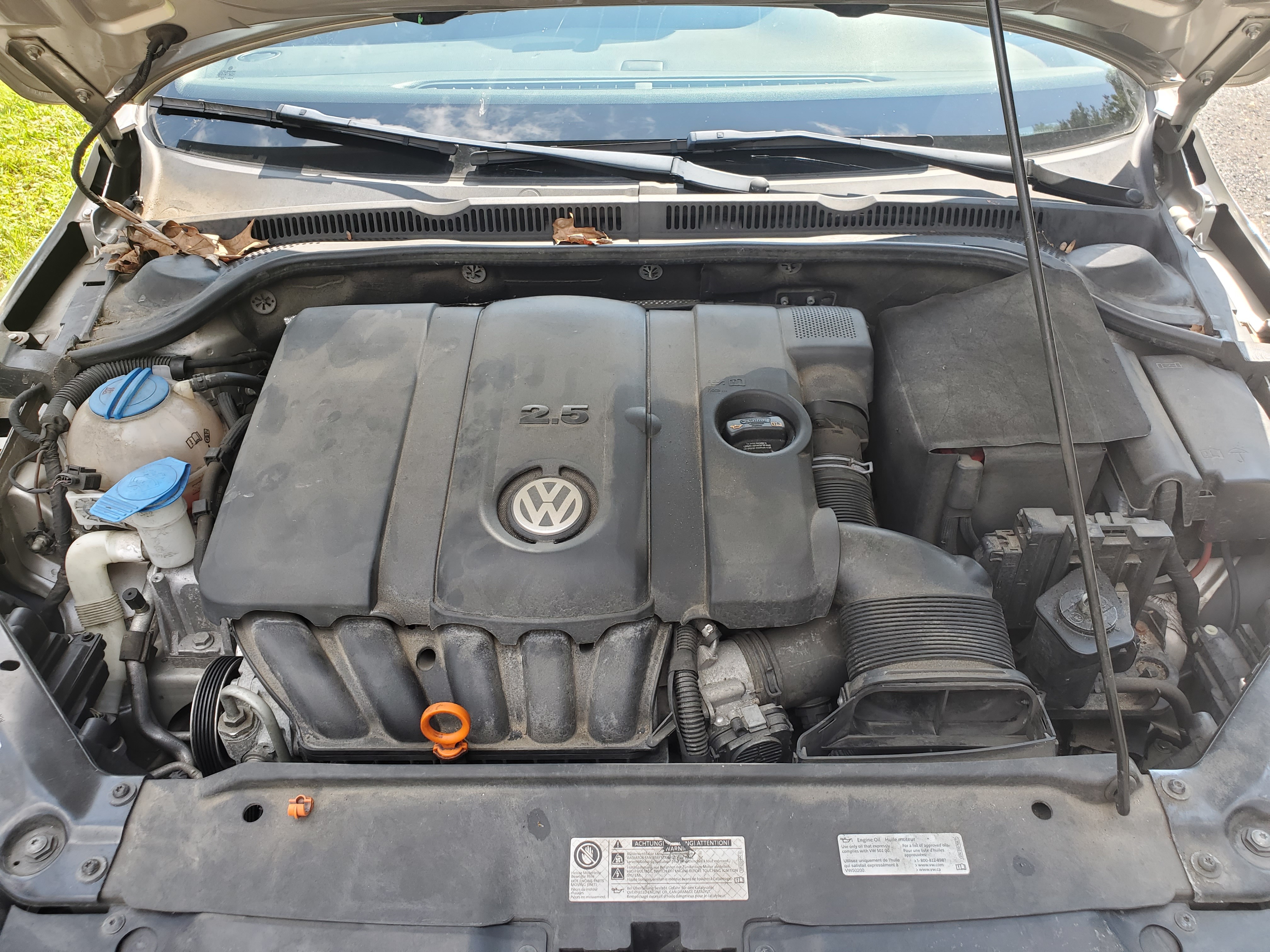
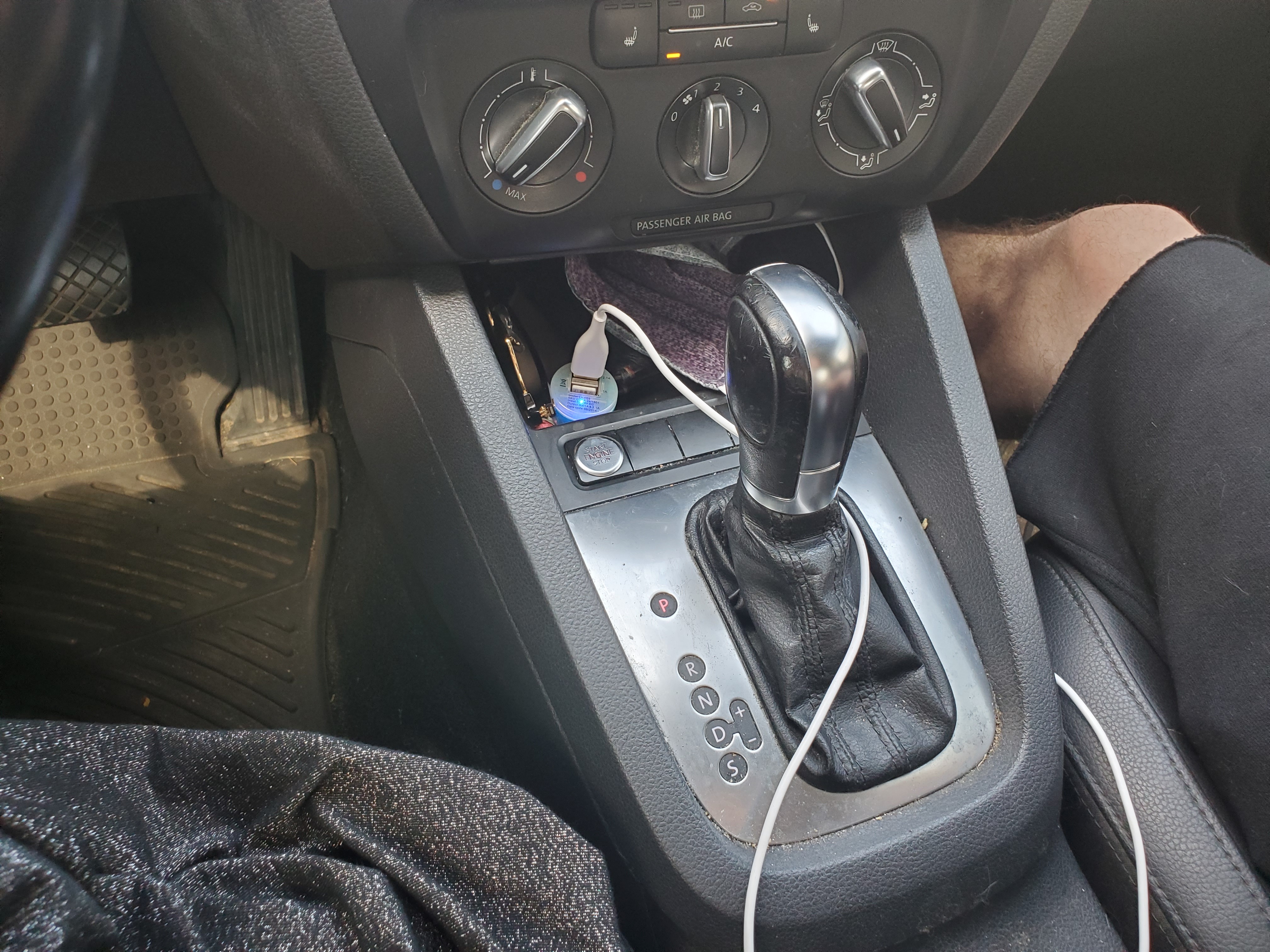
That's right, the Jetta uses a five cylinder motor. This is, I suspect, one of the major reasons for the Jetta's long hood; the engine is quite massive, occupying much of the engine compartment. The motor pumps out 170 horsepower, a respectable figure for a compact sedan, and its displacement, naturally aspirated design, and cylinder count result in a smooth, torquey powerplant that doesn't feel very reluctant to rev. Fuel economy and highway noise are somewhat compromised by such an engine, but the driver begins to forget about such concerns when they discover both the engine's responsive power delivery and its simply musical intake noise. Of course, any engine can be ruined by the wrong transmission, but fortunately, that hasn't happened here; VW fitted the Jetta with a six speed automatic that does its best to make the most of the five cylinder's efficiency and power. Shifts are usually smooth, if slow, but in Sport mode, VW not only biased for earlier kickdowns and later upshifts, but sped up the shift time as well, resulting in firmer, faster gear changes. The manual mode, curiously, uses the standard Drive shift policy, with slower, smoother shifts, so if you want those fast shifts, keep it in Sport. With this engine and transmission, acceleration is strong, and the Jetta feels just as comfortable on the highway as it does on back roads.
So what does this all add up to? It's a little hard to say. The Jetta's confident handling and strong powertrain result in a car that practically begs to be driven hard, with grip and top-end power that reward the driver for doing so, yet the car's interior is spacious, practical, and nearly comfortable. Meanwhile, the exterior is restrained, lacking fake diffusers or huge exhaust ports or spoilers that betray the Jetta's driving performance. It feels simultaneously understated and overdesigned, a contradictory car that appeals to the family's desire for a comfortable, practical car that doesn't make waves, just as it rejects that very appeal. What's going on here?
One possible conclusion is that the Jetta 2.5 SEL is an answer to the question, "How much can you remove from a 'sports sedan' before it ceases to be identifiable as such?" The canonical sports sedan is a rear wheel drive luxury sedan, boasting a powerful engine, slick, fast transmission, and an interior that rewards the driver for their investment, both with value adds like electronics, and with simpler things, like comfortable seats and higher-class materials. The Jetta discarded the high-spec infotainment, opting for a simpler, smaller unit, and didn't bother with fancy seats or heavy noise isolation. There are no variable-rate dampers to be found, no sophisticated multilink rear suspension, yet the car still handles quite well, well enough to be called sporty. The transmission is neither a high-speed dual clutch unit, nor a driver-friendly manual, yet it handles the engine's power without drama, and its drive options offer a decent variation of comfort and performance. Finally, the engine is the star of the show, offering responsive low-end torque and top-end power, giving strong acceleration despite a front wheel drive setup. Volkswagen has reduced the "sports sedan" to its barest essentials, responsive handling and a fun powertrain, not bothering themselves with the pursuit of perfection.
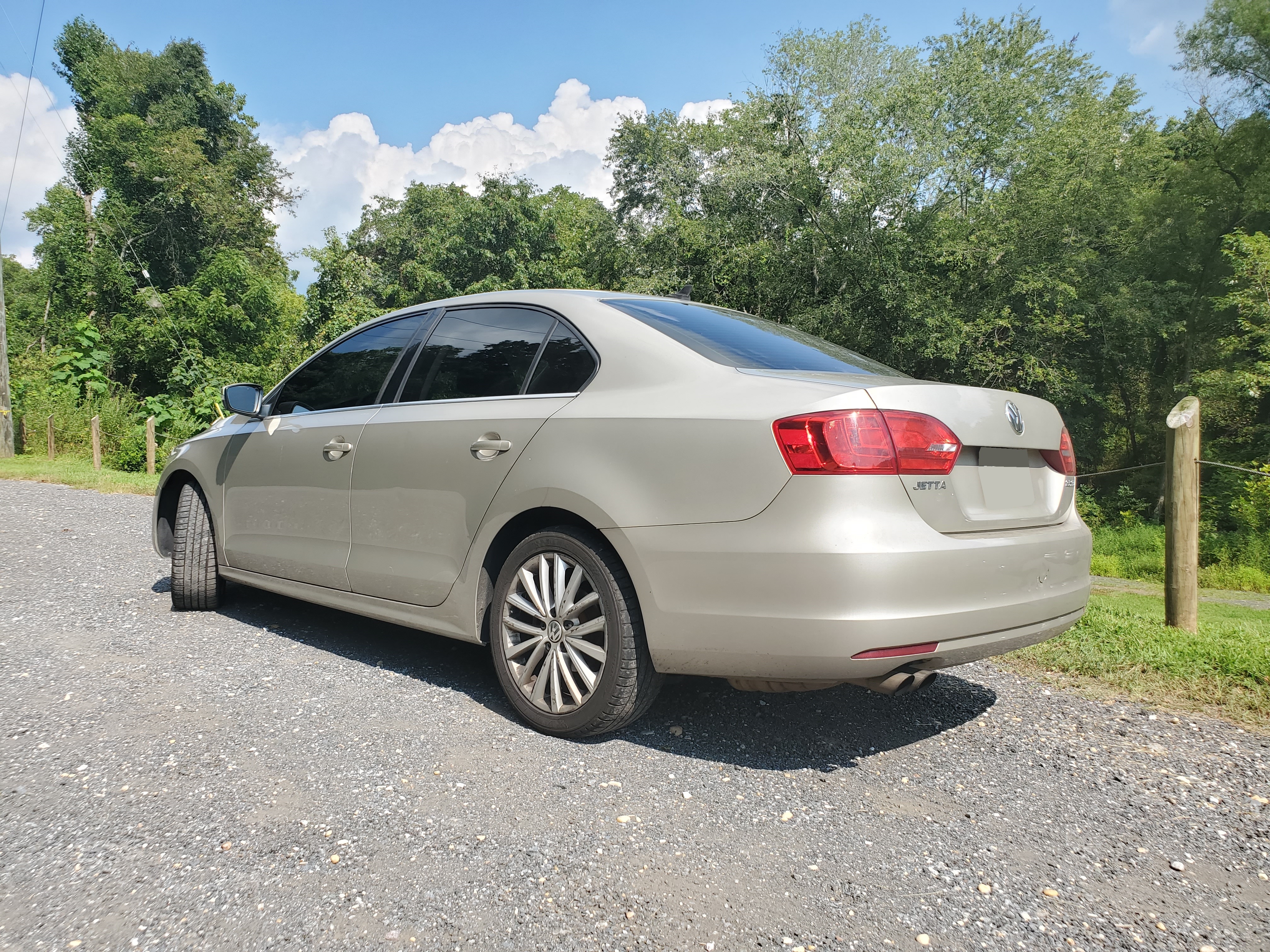
Perhaps that's part of the Jetta's thesis; eschewing perfection in pursuit of something simpler, more achievable. To love this car, to truly enjoy it, to give it your all and have it do the same, is to understand that it is flawed. It contradicts itself at every turn, constantly undermining itself, yet it's still fun, still eager and practical and eminently drive-able. We tell ourselves it's okay for the art we make, the texts we write, to be imperfect, and maybe the Jetta is just a little reminder of that.
Now, admittedly, if you want automotive perfection, you can have it. Modern luxury cars, like BMWs and Audis, are comprehensively impressive vehicles, with performance, comfort, and everything in between. Generally speaking, they could be said to have no downsides apart from their price, but the fact of the matter is that not everybody can afford them. Electric vehicles promise to further revolutionize what the luxury car is, but that's not something the average buyer can afford. That means that automotive perfection is out of the reach of most of us, but perhaps the Jetta is a small reassurance that this isn't the end of the world. Maybe, even if we can't get something that's perfect, we can find something that's flawed in ways we understand, in ways we're happy to live with. After all, if we couldn't love the imperfect, how could we ever love one another?